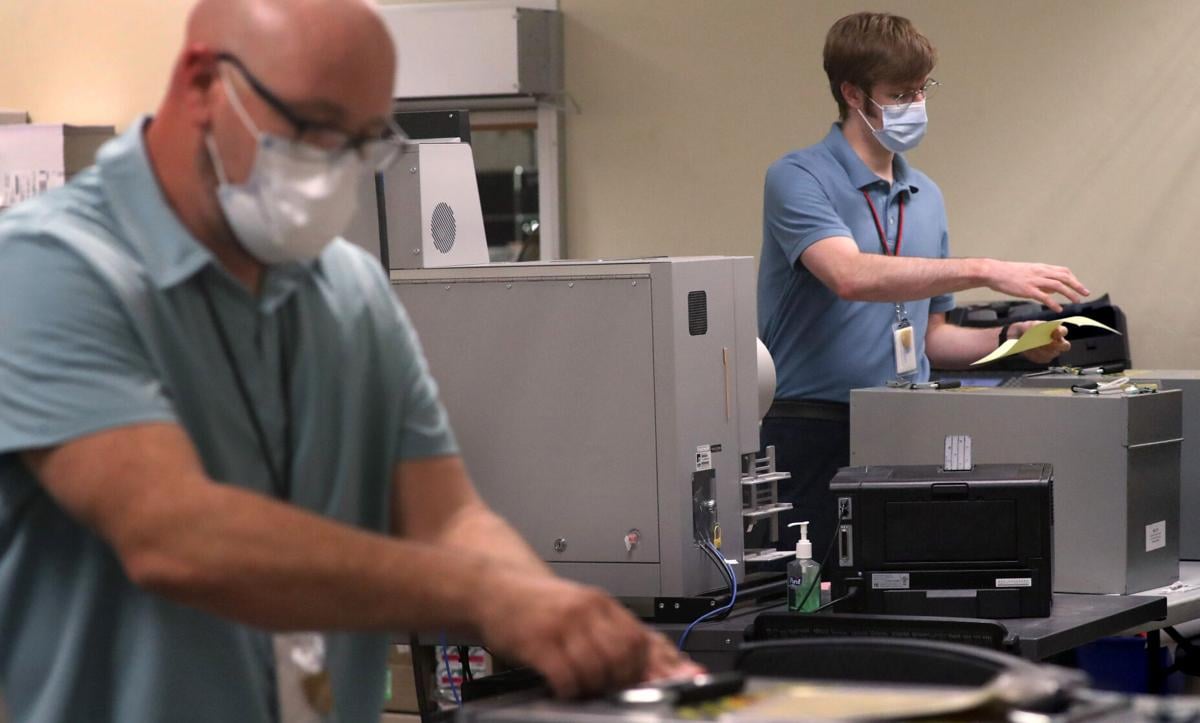Pima County’s supervisors unanimously approved the official tally of votes for the primary election Monday while directing elections staff to create a thorough overview of how the primaries went.
A total of 227,569 ballots were cast in the Aug. 2 primaries, according to the official canvass, for a voter turnout of about 36%.
Of all ballots counted, 196,624 were early ballots, 4,121 were provisional, and 17 were conditional, which are a type of provisional ballot cast when a voter provides invalid or no proof of identity.
This year’s primary election marked the county’s debut of e-pollbooks and voting centers, where poll workers check in voters with an iPad, or e-pollbook, that scans voters’ IDs and confirms their eligibility to vote. The e-pollbook then sends a ballot specific to each voter to a ballot-on-demand printer.
The new voting model also replaces the precinct-based polling system under which voters were required to vote at the location assigned to them based on their residence. Pima County voters could show up at any of 129 vote centers across the county to cast a ballot regardless of the precinct they live in.
Before canvassing the election Monday, the board directed the Pima County Recorder and elections department to create an “after action” report on any issues encountered during the primaries and presented a variety of questions to be addressed in the report.
Supervisor Steve Christy asked that the post-primary election review be submitted to the Pima County Election Integrity Commission by its Sept. 16 meeting and presented to supervisors at its Oct. 4 meeting.
“Our office received numerous anecdotal information about voting problems, voting issues, that led to a lot of dissatisfaction with the process with a lot of concern about how this was going to be reflected in the final vote,” said Christy, the board’s sole Republican. “I think it’s important that the elections department and the recorder, under their respective headings, address these issues to allay the fears in the community.”
Christy brought up a number of issues he said the report should address. Some of the supervisor’s concerns reiterated problems Pima County officials reported on Election Day, including some ballot-on-demand printers experiencing technical challenges and some voting centers running out of supplies.
One such issue was delays at the Kirk-Bear Canyon Library, a vote center in Christy’s District 4, that received more voters than anticipated and ran out of ballot paper, causing a “less than an hour delay,” Mark Evans, the county’s communications director, said on Aug. 2.
Christy also asked for elections officials to address reports that federal ballots were issued to voters registered as Independents, and what he called “woefully inadequate” training of poll workers ahead of the primaries.
Board Chair Sharon Bronson concurred with Christy’s statements and said her District 3 office heard similar concerns.
Supervisor Rex Scott asked the post-election report to address if the main concerns raised at the time the new voting center process was approved by the board, such as long-wait times and connectivity issues, were experienced on Aug. 2.
“I think the main thing that I’d like to know is what are the key lessons that we learned in this first round of using vote centers and e-pollbooks that we can apply during the general election,” Scott said.
Supervisors Adelita Grijalva and Matt Heinz said they thought the election ran smoothly, with Grijalva adding: “I thought that you all did a remarkable job.”
Local elections results can be viewed here: tucne.ws/1l5g





